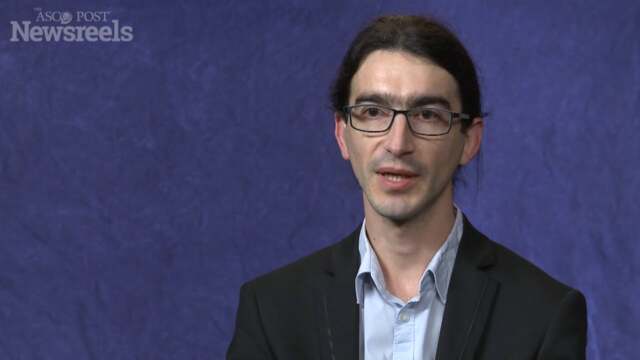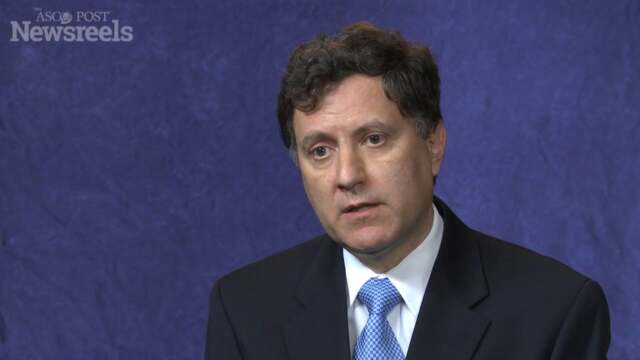Michael J. Overman, MD, on Colorectal Cancer: Updated Results From CheckMate 142
2017 Gastrointestinal Cancers Symposium
Michael J. Overman, MD, of The University of Texas MD Anderson Cancer Center, discusses study findings on nivolumab alone or in combination with ipilimumab in patients with DNA mismatch repair–deficient/microsatellite instability high metastatic colorectal cancer (Abstract 519).
Julien Edeline, MD, of the Centre Eugène Marquis, discusses study findings on gemcitabine and oxaliplatin vs surveillance following surgery for localized biliary tract cancer (Abstract 225).
Ignacio Melero, MD, PhD, of the University Clinic of Navarra, Centre of Applied Medical Research, discusses study findings on nivolumab dose escalation and expansion in patients with advanced hepatocellular carcinoma (Abstract 226).
Cynthia L. Sears, MD, of Johns Hopkins University School of Medicine, summarizes her keynote talk on microbes, microbiota, and colon cancer. Next-generation sequencing combined with biologic studies suggests that most colorectal cancer cases have specific microbiome associations.
Mark Talamonti, MD, of NorthShore University Health System, discusses the technical prerequisites for minimally invasive surgery in pancreatic cancers and the potential benefits to patients.
Scott Kopetz, MD, of The University of Texas MD Anderson Cancer Center, discusses study findings on irinotecan and cetuximab with or without vemurafenib in BRAF-mutant metastatic colorectal cancer (Abstract 520).





